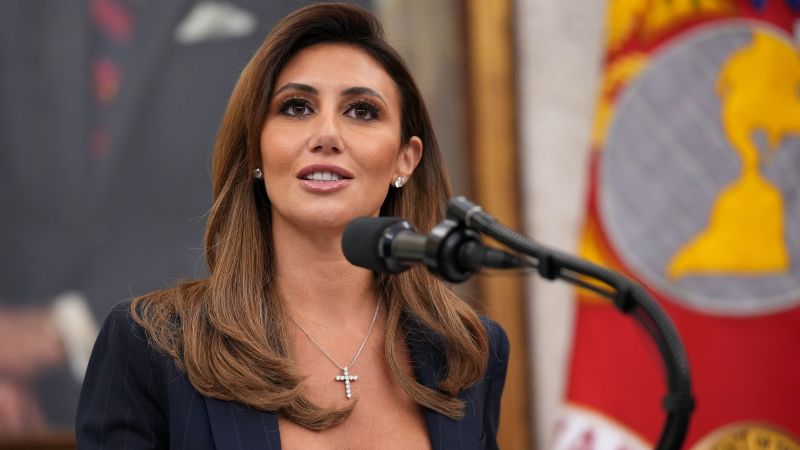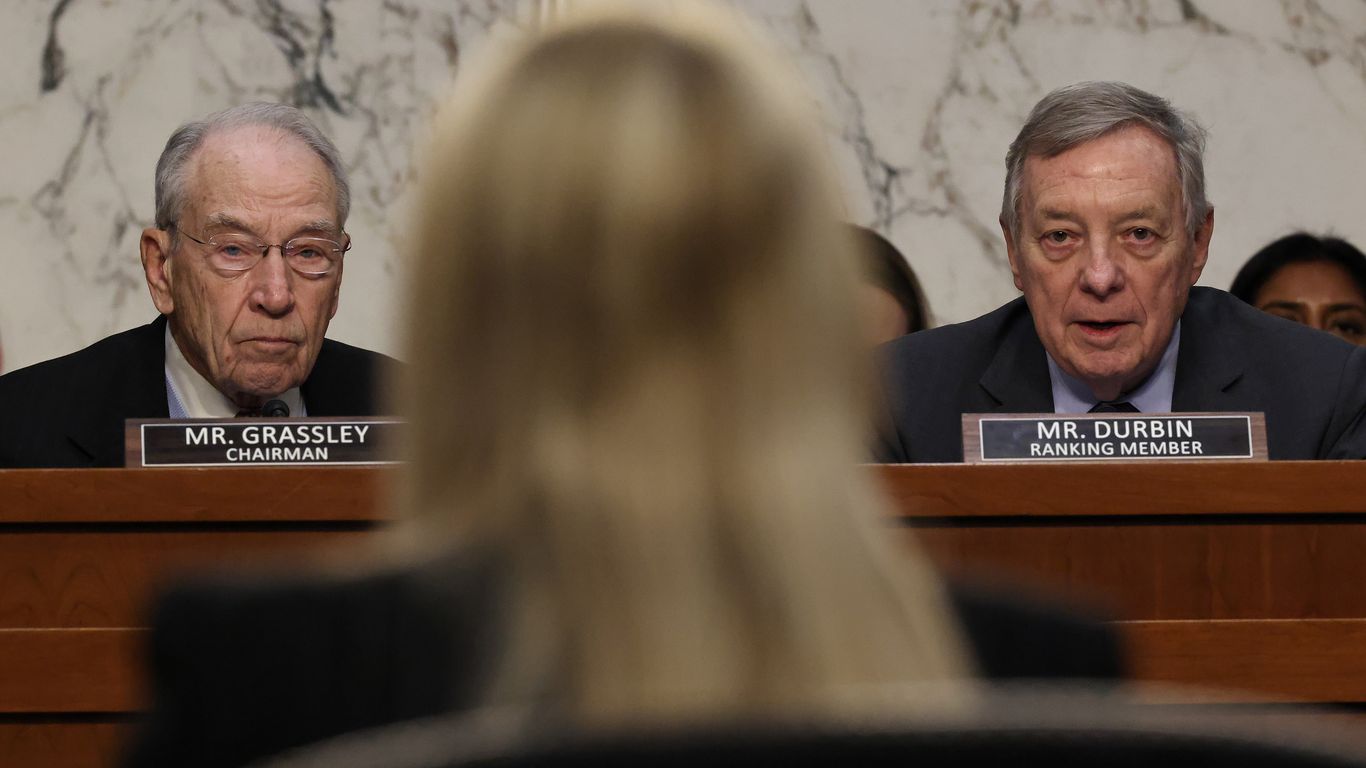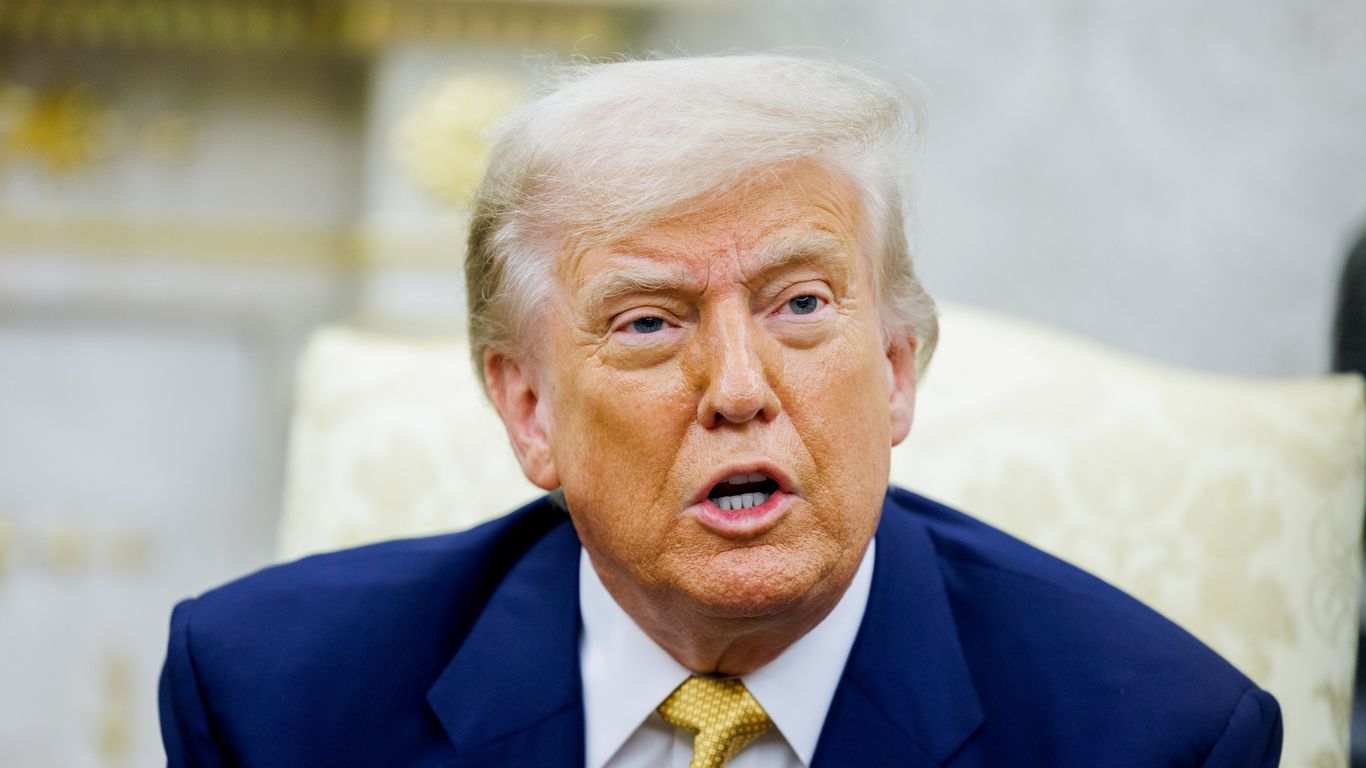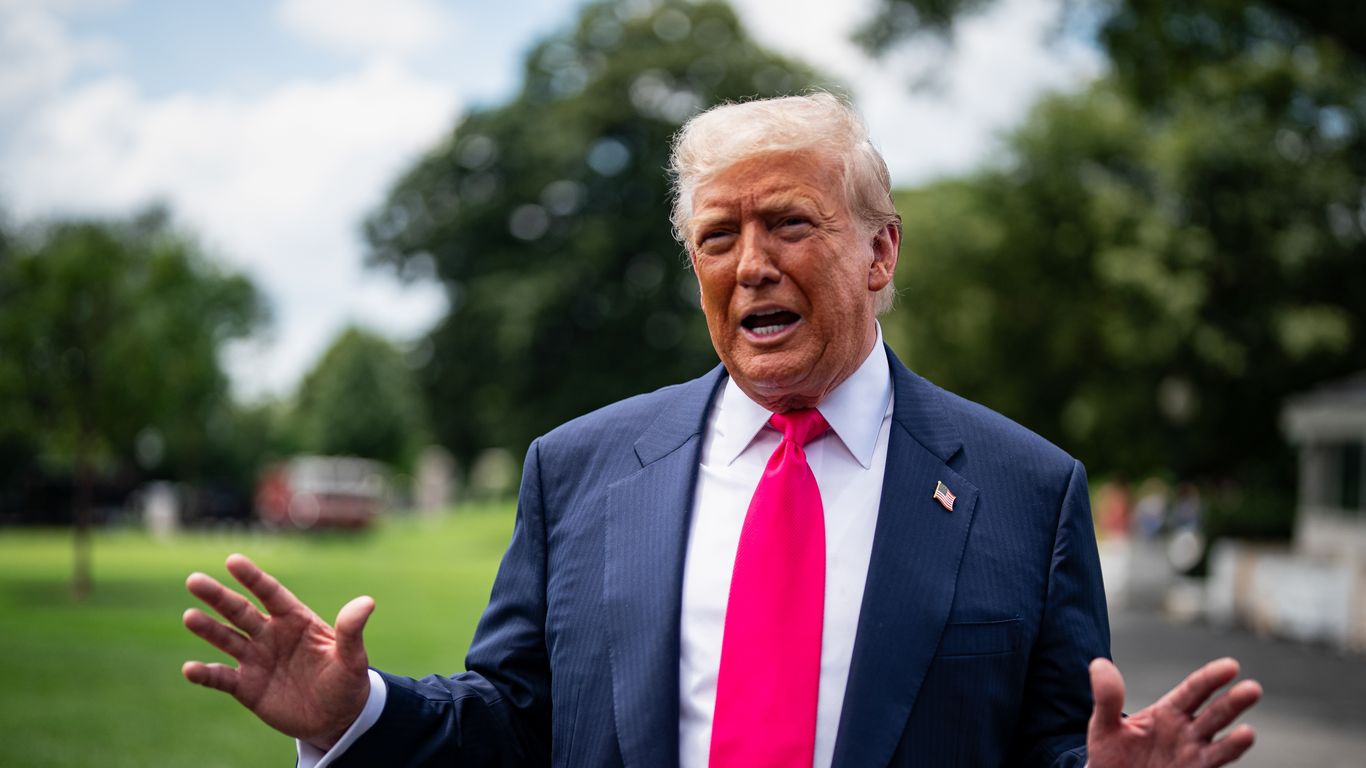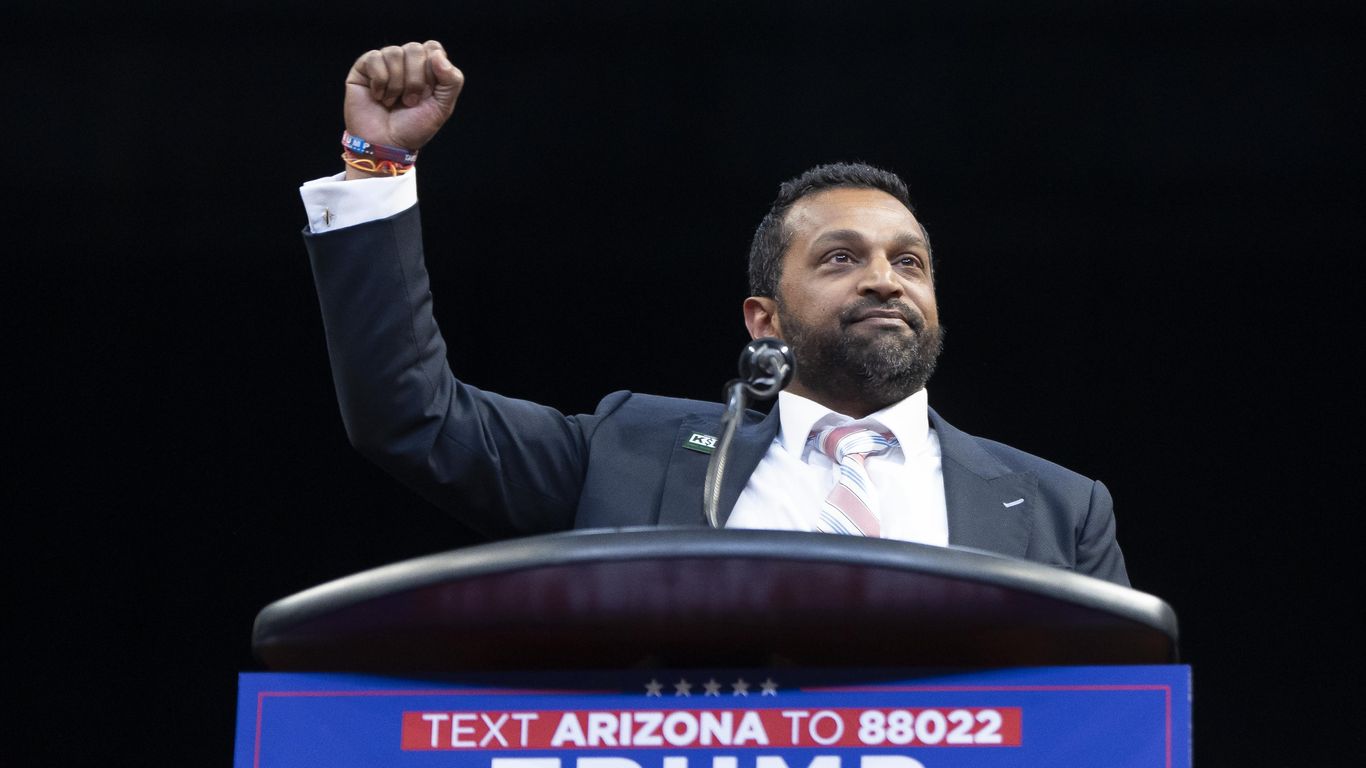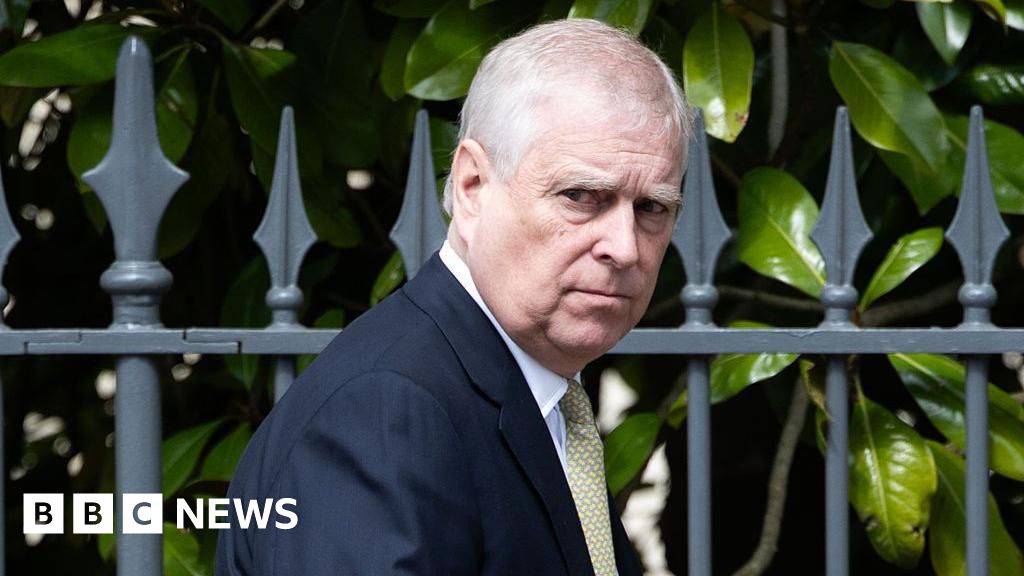Ghislaine Maxwell Receives Limited Immunity from DOJ in Epstein Case
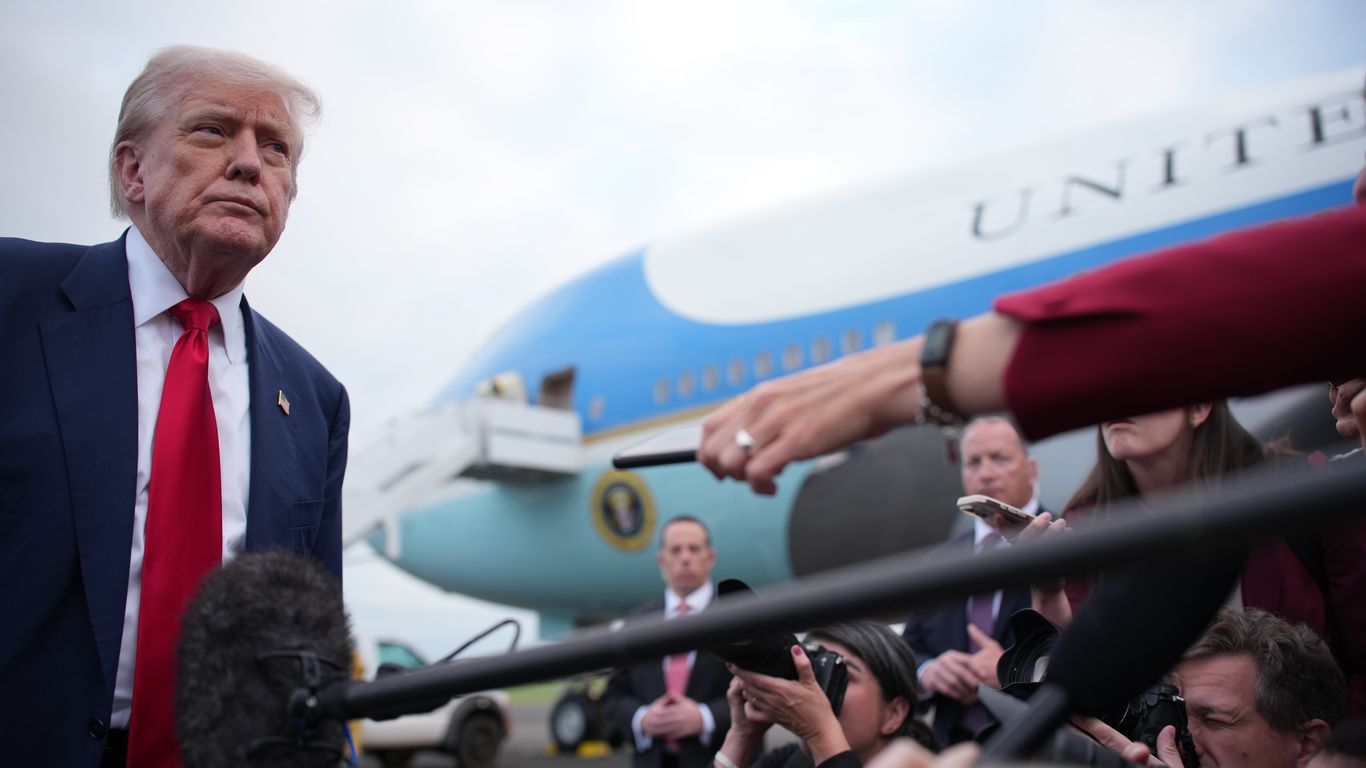
Introduction
Ghislaine Maxwell, an associate of the late convicted sex offender Jeffrey Epstein, has reportedly secured "limited" immunity from the Department of Justice (DOJ). According to news reports, Maxwell spoke to the DOJ's Todd Blanche for a total of nine hours over two days. This development comes as Maxwell is appealing her own sex trafficking conviction, which she was found guilty of in 2021. But what exactly does this "limited" immunity mean for Maxwell and the ongoing legal proceedings against her?
Details and Context
Maxwell's conversations with Blanche were reportedly focused on her involvement in Epstein's alleged sex trafficking ring. This is a significant development, as Maxwell has been accused of being a key accomplice in Epstein's crimes, but previously denied any involvement. It is unclear what specific information Maxwell provided during her discussions with the DOJ, but it is likely to have significant implications for both her case and the larger investigation into Epstein's crimes.
Impact and Conclusion
This news of "limited" immunity for Maxwell has sparked speculation and debate, with some questioning the motivations behind the DOJ's decision. Some argue that this could be a strategic move to gather further evidence against Maxwell and others involved in Epstein's crimes. Others question if this immunity will ultimately help or hinder the pursuit of justice for the victims of Epstein's abuse. Regardless, this development adds a new
About the People Mentioned
Ghislaine Maxwell
Ghislaine Maxwell is a British-born former socialite and convicted sex offender, primarily known for her association with financier Jeffrey Epstein. Born on December 25, 1961, in Maisons-Laffitte, France, she was raised in Oxford, England, and attended Balliol College, Oxford. She is a naturalized American citizen and holds British and French citizenship[2]. Maxwell is the youngest daughter of Robert Maxwell, a media mogul and controversial figure whose death in 1991 sparked significant public intrigue. She initially worked in various roles connected to her father's business empire and later became a prominent socialite in New York City[1][2]. In 2012, she founded the TerraMar Project, a non-profit focused on ocean conservation, which ceased operations in 2019 amid legal scrutiny[2]. Her notoriety increased dramatically due to her involvement with Jeffrey Epstein, a convicted sex offender. In July 2020, Maxwell was arrested and charged by U.S. federal authorities with multiple crimes related to sex trafficking of underage girls, acting as Epstein's recruiter and accomplice. She was denied bail due to concerns about her finances and flight risk[2]. In December 2021, Maxwell was found guilty on five of six charges, including sex trafficking of a minor, and in 2022 she was sentenced to 20 years in prison[2][6]. Maxwell's trial revealed extensive evidence of her role in Epstein's abuse network, drawing significant media attention due to her high-profile social connections. She faces a separate pending trial for charges of perjury related to her testimony about Epstein’s activities[2][3]. Her case remains a focal point in discussions about sex trafficking and accountability among elite social circles.
Jeffrey Epstein
Jeffrey Edward Epstein (January 20, 1953 – August 10, 2019) was an American financier and convicted sex offender whose life and crimes attracted intense media scrutiny and public controversy[1][3]. Born and raised in Brooklyn, New York, Epstein initially worked as a teacher at the Dalton School in Manhattan before transitioning to a career in finance, joining Bear Stearns and later establishing his own investment firms[1][2]. He managed the wealth of billionaire Leslie Wexner, amassing significant personal fortune and cultivating a social circle that included politicians, celebrities, business leaders, and even royalty[2][3]. Epstein’s professional achievements were overshadowed by criminal allegations. In 2005, police in Palm Beach, Florida, began investigating him after a parent reported he had sexually abused her 14-year-old daughter[1]. Federal authorities later identified dozens of girls, some as young as 14, whom Epstein had allegedly abused[1][6]. In 2008, he pleaded guilty in Florida state court to procuring a child for prostitution and soliciting a prostitute as part of a controversial plea deal, serving nearly 13 months in custody with work release privileges[1][2]. Despite his conviction, Epstein avoided more severe federal charges at the time. In July 2019, Epstein was arrested again on federal charges for sex trafficking minors in Florida and New York[1][2]. While awaiting trial in a Manhattan jail, he was found dead in his cell on August 10, 2019; the medical examiner ruled his death a suicide by hanging[1][3]. The circumstances surrounding his death, including missing and modified CCTV footage, fueled widespread public skepticism and conspiracy theories[1]. In July 2025, the FBI released surveillance footage supporting the suicide ruling, though questions about the investigation persist[1]. Epstein’s case remains highly relevant due to ongoing lawsuits by his victims, investigations into his associates, and the release of thousands of previously sealed documents in early 2024 that renewed public interest in his network and alleged co-conspirators[2]. His former associate, Ghislaine Maxwell, was convicted of related charges, underscoring the lasting impact of his crimes[2]. Discussions about accountability, the influence of wealth and power, and the treatment of survivors continue to shape the public dialogue around Epstein’s legacy[2][5].
About the Organizations Mentioned
Department of Justice
The **United States Department of Justice (DOJ)** is a federal executive department responsible for enforcing federal laws, ensuring public safety, defending the interests of the United States, and upholding civil rights. Established in 1870 to consolidate federal legal affairs under the Attorney General, the DOJ has grown into a vast organization with over 115,000 employees and a budget exceeding $22 billion[1][4][5]. It operates through more than 40 component organizations, including prominent law enforcement agencies such as the Federal Bureau of Investigation (FBI), Drug Enforcement Administration (DEA), Bureau of Alcohol, Tobacco, Firearms and Explosives (ATF), and the U.S. Marshals Service[1][4][5]. The DOJ’s core mission is to uphold the rule of law, keep the nation safe, protect civil rights, and ensure a fair and impartial administration of justice across federal, state, local, tribal, and international levels[2][5]. It investigates and prosecutes federal crimes, including terrorism, drug trafficking, organized crime, financial fraud, and cybercrime. The FBI, as the DOJ’s principal investigative arm, leads in areas such as counterterrorism, counterintelligence, and cybercrime[6]. Additionally, the DOJ manages federal prisons and provides leadership and resources to state and local law enforcement agencies. Historically, the DOJ’s origins trace back to the Judiciary Act of 1789, which created the Attorney General's office. Its establishment as a separate department in 1870 allowed for greater coordination of federal law enforcement and legal representation of the government[2][4]. Over time, the DOJ has played a critical role in landmark civil rights enforcement, combating organized crime, and adapting to modern challenges such as cyber threats and international criminal cooperation[1][5]. Today, headquartered in Washington, D.C., with field offices nationwide and abroad, the DOJ continues to influence national security and justice policy, balancing traditional law enforcement with evolving technological and societal demands.


